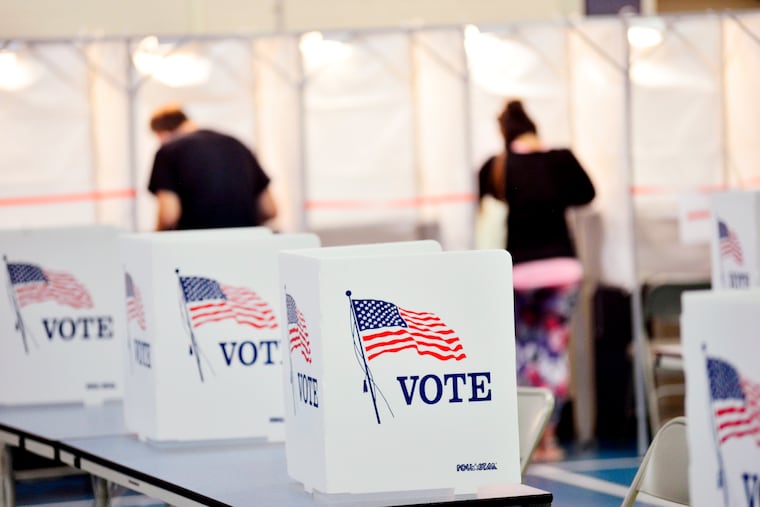Carrying Yom Kippur’s message of atonement to the voting booth | Opinion
Imagine if we approach our elections with a greater urgency to confront ourselves and politicians to work harder to create a more perfect union of empathy and shared responsibility.

“We have trespassed,” begins the Viddui, the sacred prayer of repentance that will be repeated on Yom Kippur, which begins Sunday at dusk.
When I was a child, I silently replied that I had not trespassed.
“We have betrayed. We have stolen. We have slandered.”
I have not, I used to think. As I matured, I began to see in myself literal and metaphorical trespasses, betrayals, and other sins.
» READ MORE: On Yom Kippur, I think of my grandmother and the sweaters I didn’t love enough
But it was only recently as a middle-aged adult that I had an epiphany: the prayer is speaking in the first-person plural. When taken to its logical conclusion, it offers a radical thought: we all need to atone for the sins of us all. Imagine a world in which rather than call out folks on social media, pointing blame at the Other, we take ownership of all of our collective sins. With this collective guilt comes an awesome burden that is easily translatable to our times.
We have put children in cages.
We have permitted sexual violence.
We have polluted our waters.
We have placed migrants and asylum seekers in jails.
We have denied systemic racism and we have perpetuated it.
We have taken money from the poor to enrich the wealthy.
We have caused violence.
We have thrown innocent men and women in prison.
We have pressed a knee on the neck of an unarmed black man for eight minutes and 46 seconds until he died and we have allowed a society in which crimes like this are too often unpunished.
I imagine that some might push back: Am I really guilty of Harvey Weinstein’s or Bill Cosby’s crimes? Am I to blame for the Trump administration’s policy of separating children from their mothers? Can you blame me for street violence? Or hate crimes? The direct victims of these sins are not to blame for what was heaped upon them. But most of us could do more, much more. We are all like Oskar Schindler at the end of Steven Spielberg’s film. “I didn’t do enough,” he says with guilt and anguish.
» READ MORE: Picking up her husband's shofar, widow makes temple history
Imagine that we, newly armed with a sense of collective culpability and responsibility, approach this autumn with the understanding that the world’s problems are intrinsic to our lives and our communities. Imagine if we approach our local, state, and national elections with a greater urgency to confront ourselves and politicians to work harder to create a more perfect union of empathy, shared responsibility, and love.
David T. Z. Mindich is the chair of the journalism department at the Klein College of Media and Communication at Temple University. Before becoming a professor, Mindich worked as an assignment editor for CNN. He has written articles for The New York Times, Wall Street Journal, the Washington Post and other publications. He is the author of three books, including The Mediated World: A New Approach to Mass Communication and Culture.